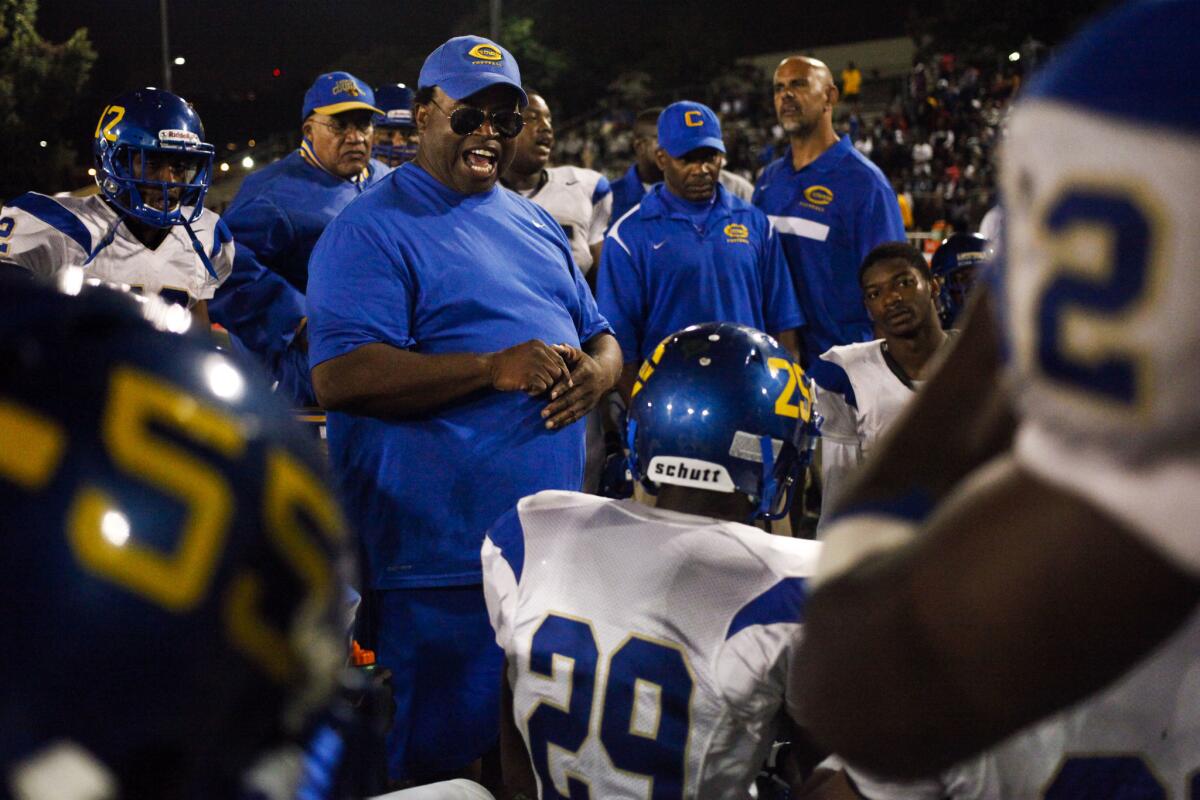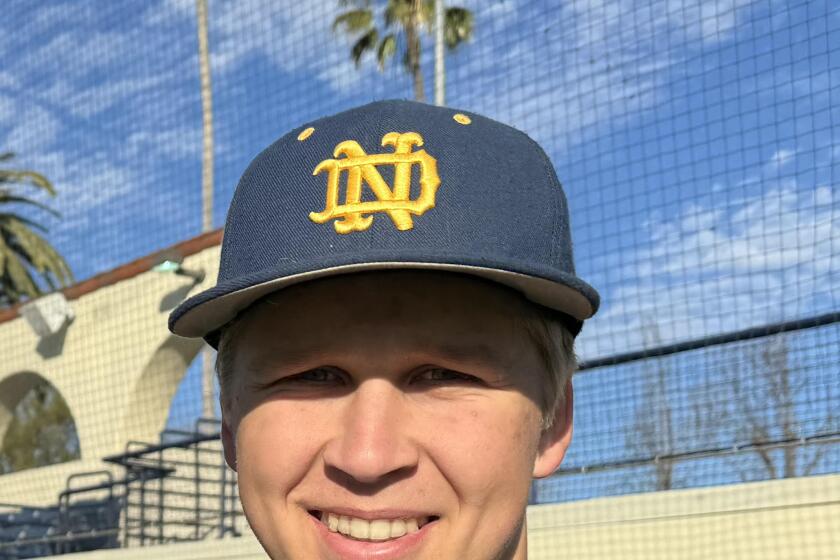Column: For too many high school programs, teaching has taken a backseat to winning

It’s a new year and a good time to reflect on where the high school sports experience stands, the good and the bad.
I’ve witnessed lots of changes since 1976, my first year as a reporter. Neighborhood sports teams have pretty much vanished. They exist in a distant memory.
Brothers and sisters used to follow one another to the same school. Coaches used to know who would be coming each fall by seeing who was at the local junior high. Parents knew other parents since their children were in elementary school and would remember stories of their carpool and cupcake party days.
Those days are mostly gone in the era of private coaching, open enrollment, travel ball and the endless quest to be rewarded with a trophy or scholarship.
There are so many MVPs on all-league teams — 10 for one league! — that they’ve become worthless in terms of determining who really is the best. We’re in the era of participation trophies and making sure everyone feels good regardless of the truth.
It’s also the era of “let’s make a deal.” It’s why IMG Academy in Florida can openly recruit players from as far away as California, promising them breaks in tuition, exposure to professional coaches and access to big-time college recruiters in the name of creating successful all-star teams.
As one reader wrote to me, “Modern culture is destroying basic values that once were imbued through participation in high school sports.”
The CIF is supposed to keep the flame lit but it continues to lose ground to those wanting to be like college or professional teams, which usually means win at all costs. It’s a delicate balancing act that causes lots of frustration, finger pointing and lawsuits.
There’s a real debate under way regarding coaches who want to gauge their success by how many sports scholarships their players receive and coaches who were trained to be education-based teachers.
Robert Garrett, the longtime Crenshaw coach who helped send such players as Brandan Mebane and De’Anthony Thomas to the NFL, is fed up with what he’s seeing.
“This is not what I went into coaching for,” he said. “Back when I was 17, it was clear I had to be an educator if I wanted to coach. Therefore, I went to Concordia Teachers College in Nebraska to accomplish that goal.
“Nowadays, anybody from anywhere is allowed to coach. Coaching and assisting youngsters with their growth and development has taken a different approach, sadly for the wrong reasons.”
The good news is there are schools and individuals fighting the good fight and creating islands within the system to maintain a semblance of amateurism and the teaching of values espoused by those from long ago.
Dave White, retiring after 31 years as football coach at Huntington Beach Edison, said, “The No. 1 thing I’m going to cherish is all the kids who came back and coached for me. If they had a good experience and want to come back and coach with you, that’s important.”
The problem is the gap between success and failure is widening. Young innovators are disappearing because it’s so much more difficult now to become a full-time teacher and coach.
Principals who grew up playing sports and understanding the importance of the acquired lessons are fewer in number. District administrators lack the motivation to seek the men and women who can make a difference on and off the field.
At some point, a school’s leader must decide what their mission truly is. Is it based on the number of championship banners on their gym wall? Or is it based on how many alumni return each year from college or from their new life as an adult to say thanks to a teacher or coach for their positive high school experience?
Manuel Douglas, the football coach at Harbor City Narbonne, said he probably wouldn’t have made it out of high school without the help of his track coach.
“One day I had $176 in parking tickets,” he said. “They were going to take me in and put me in jail. And my track coach was there to support me and wrote a check. I paid him back $10 a week. If that guy wasn’t there, I don’t graduate.”
It’s a lesson he learned about looking out for the players — and not just the ones who will be pros or receive scholarships.
“My philosophy is everyone is important and you don’t throw anyone away,” he said. “There’s varying degrees of victory.
“Some kids are struggling and maybe he passes a class and graduates. That’s a victory.
“It’s great we got 11 kids scholarships last year and maybe nine this year. But no one is more important than the team.”
eric.sondheimer@latimes.com
Twitter: latsondheimer
Get our high school sports newsletter
Prep Rally is devoted to the SoCal high school sports experience, bringing you scores, stories and a behind-the-scenes look at what makes prep sports so popular.
You may occasionally receive promotional content from the Los Angeles Times.




